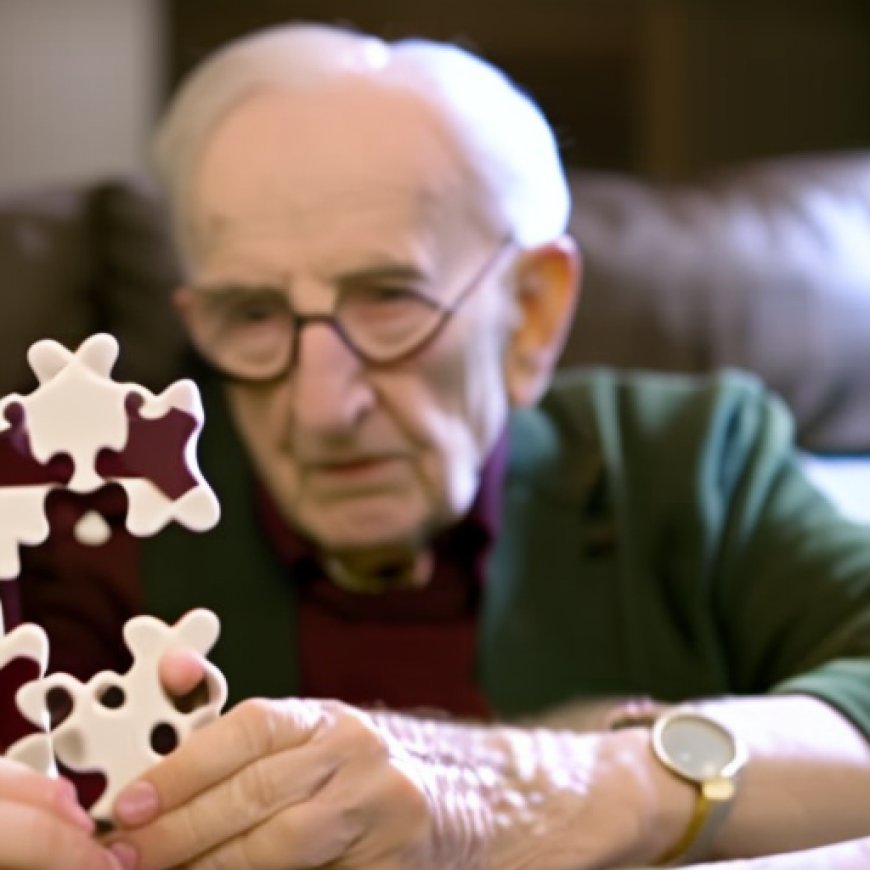Puzzles And Games Cut Dementia Risk—But Socializing With Friends And Family Barely Helps, Study Finds
Puzzles And Games Cut Dementia Risk—But Socializing With Friends And Family Barely Helps, Study Finds Forbes


Topline
Puzzles, card games, chess and adult education classes can reduce the risk of developing dementia over the age of 70 by as much as 11%, a new study found, but participating in group activities and maintaining active social circles have little impact on late-in-life memory loss.
Key Facts
Adult literacy activities, learning new skills, taking classes and, to a lesser extent, crafting or artistry all contributed to a lower dementia risk in people over 70, a study published Friday by the American Medical Association journal JAMA Network Open found.
Active mental activities—crosswords, puzzles, games, cards or chess—and adult literacy, defined in the study as attending a class, writing or using a computer, provided the greatest benefits because they either are competitive in nature and require problem solving or require participants to process and store new information.
The benefits of challenging cognitive activities stayed the same even as other factors in participants’ lives were different—like level of earlier education and socioeconomic status—according to the study by researchers at Australia’s Monash University.
The study analyzed more than 10,000 people over the age of 70, 98% of whom were white. Researchers found that frequency of social activities and the number of close friends and family were not associated with dementia risk.
The study’s results are in line with some existing literature that mentally stimulating activities may help delay the onset of symptoms of Alzheimer’s and other former of dementia, but findings on the issue differ—the Bronx 20-year longitudinal Aging Study found that doing regular crossword puzzles can slow memory decline by 2.5 years but a team of Scottish researchers in 2018 said they found such mental stimulation may help the brain cope with disease but does not prevent its actual onset.
Key Background
There are more than 10 million new cases of dementia each year worldwide, according to Alzheimer’s Disease International, and as many as 78 million people are expected to be living with dementia by 2030 as the number of cases almost doubles every 20 years. The majority of the increase is expected to be seen in developing countries, ADI says. The global cost of dementia is above $1.3 trillion and is expected to rise to $2.8 trillion by 2030, including the cost of informal care provided by friends and family, social care and medical care. Population growth and population aging are the main reasons behind a large rise in global dementia cases, according to a study published in Lancet Public Health.
Tangent
The Food and Drug Administration
SDGs, Targets, and Indicators
-
SDG 3: Good Health and Well-being
- Target 3.4: By 2030, reduce by one-third premature mortality from non-communicable diseases through prevention and treatment and promote mental health and well-being.
- Indicator 3.4.2: Suicide mortality rate
The article discusses the risk of developing dementia and the potential impact of certain activities on reducing this risk. Dementia is a non-communicable disease that affects mental health and well-being, making it relevant to SDG 3. The study mentioned in the article explores the connection between cognitive activities and dementia risk, aligning with Target 3.4.
-
SDG 4: Quality Education
- Target 4.6: By 2030, ensure that all youth and a substantial proportion of adults, both men and women, achieve literacy and numeracy.
- Indicator 4.6.1: Proportion of population in a given age group achieving at least a fixed level of proficiency in functional (a) literacy and (b) numeracy skills, by sex.
The article highlights the positive impact of adult literacy activities and learning new skills on reducing dementia risk. These activities contribute to achieving Target 4.6 by promoting literacy and numeracy skills among adults.
| SDGs | Targets | Indicators |
|---|---|---|
| SDG 3: Good Health and Well-being | Target 3.4: By 2030, reduce by one-third premature mortality from non-communicable diseases through prevention and treatment and promote mental health and well-being. | Indicator 3.4.2: Suicide mortality rate |
| SDG 4: Quality Education | Target 4.6: By 2030, ensure that all youth and a substantial proportion of adults, both men and women, achieve literacy and numeracy. | Indicator 4.6.1: Proportion of population in a given age group achieving at least a fixed level of proficiency in functional (a) literacy and (b) numeracy skills, by sex. |
Behold! This splendid article springs forth from the wellspring of knowledge, shaped by a wondrous proprietary AI technology that delved into a vast ocean of data, illuminating the path towards the Sustainable Development Goals. Remember that all rights are reserved by SDG Investors LLC, empowering us to champion progress together.
Source: forbes.com

Join us, as fellow seekers of change, on a transformative journey at https://sdgtalks.ai/welcome, where you can become a member and actively contribute to shaping a brighter future.







